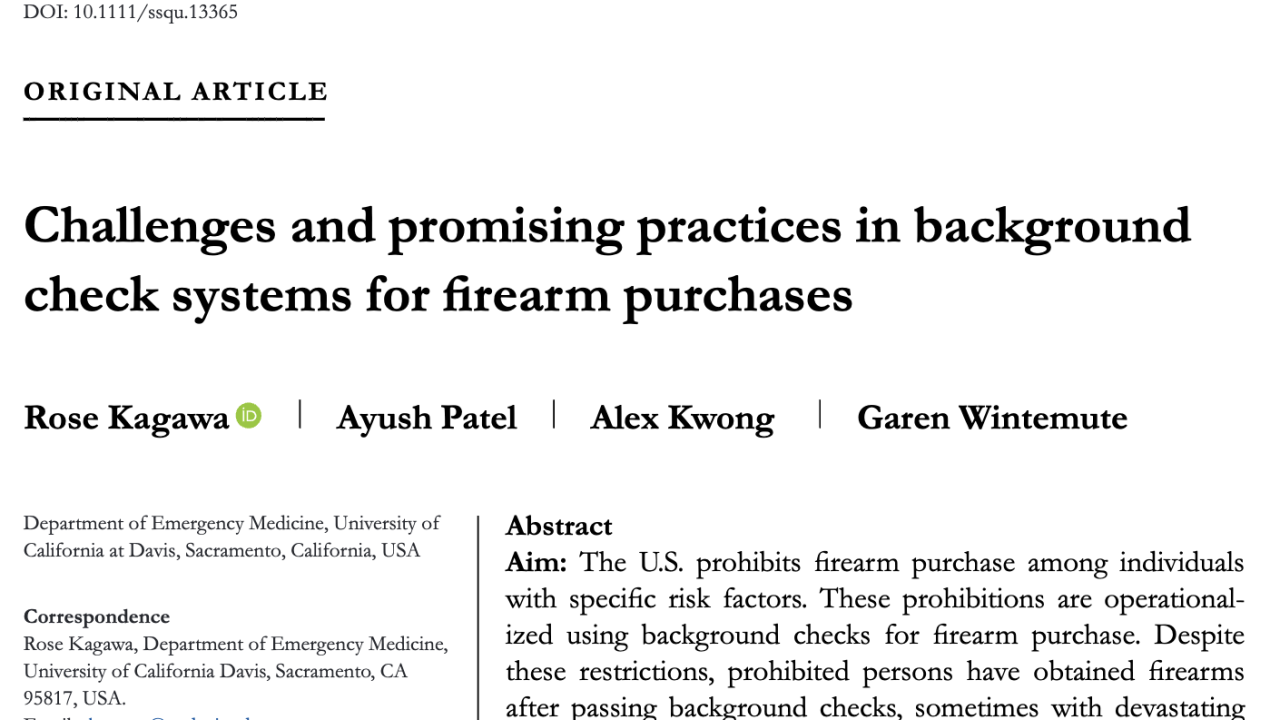
Challenges and promising practices in background check systems for firearm purchases
Quick Summary
- The systems that together make the U.S. background check system have witnessed vast improvements over the past decades, with the total number of records available increasing. Our results highlight a range of efforts that could strengthen effectiveness
Abstract
Aim
The U.S. prohibits firearm purchase among individuals with specific risk factors. These prohibitions are operationalized using background checks for firearm purchase. Despite these restrictions, prohibited persons have obtained firearms after passing background checks, sometimes with devastating effects.
Materials and Methods
We conducted a mixed-methods, descriptive study of the records and record-keeping practices that underpin background checks for firearm transfers. Sources included key informant interviews with individuals working in a leadership capacity with state record-keeping systems as well as data from state surveys and administrative records. We analyzed quantitative data using descriptive statistics and qualitative data using a thematic analysis approach to code the data and identify themes. Three investigators coded each interview. We returned to all data sources to develop key findings in an iterative process.
Results
Key informants described major improvements in the collection of specific record types that were previously a “black hole” (e.g. criminal history records housed in military justice systems, and records relating to involuntary commitments for mental illness) and advances in the automation of record transfer across agencies, themes corroborated by administrative data. Key informants also identified potential causes and solutions for challenges relating to missing or incomplete information and delays in resolving ambiguous background check results. Examples include manual processes for confirming relationship status in misdemeanor crimes of domestic violence and discordant practices for processing arrest and court records that result in dispositions that cannot be entered or arrests with no disposition.
Conclusion
Background checks are the backbone of many policies designed to prevent firearm harm in the United States. This study highlights actionable ways in which states could make background check practices and policies more robust.
Media Resources
Read the study in Social Science Quarterly
